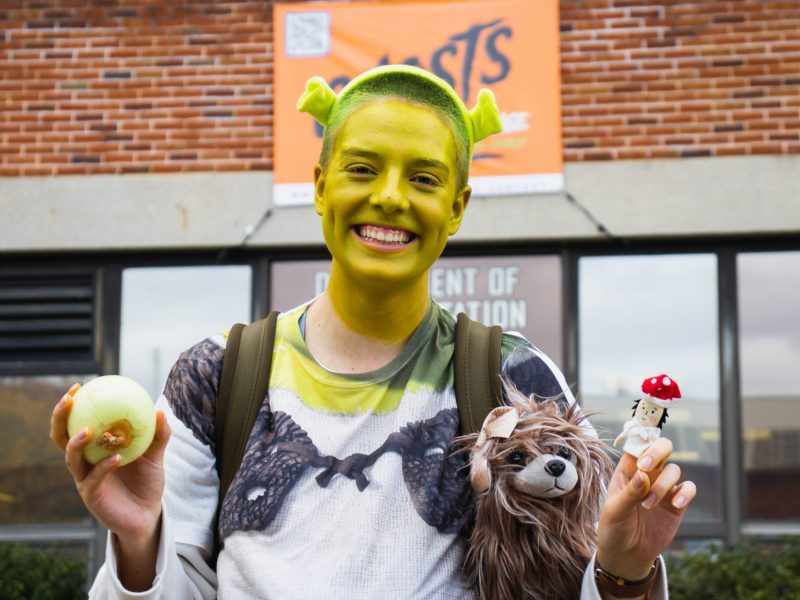In her music video for “Break Free,” Ruby Rose puts on a binder to flatten her breasts and emerges proud at the end wearing a packer, a phallic object placed in the pants to give the appearance of a bulge.
Conversations about gender dysphoria exploded in reaction to the video on Facebook, Twitter and YouTube. Fans asked Rose her pronouns on Twitter, to which she responded leniently she, her, hers.
@StopMoonMoon I don’t mind. I’m fairly neutral but don’t like going by “them, their, they” so it’s usually she. But if someone calls me..
— Ruby Rose (@RubyRose) April 20, 2015
Because of a newfound freedom of conversation and expression supplied by technology, forms of gender expression in pop culture have evolved through social media and electronic music since the time of Boy George, Prince and David Bowie, stripping the conversation down and redefining what is acceptable.
It is vital to note, however, that gender and sexuality, often viewed as synonymous, are two different identities.
As transgender culinary student and writer Shannon Mannion wrote in Marie Claire: “I am a transgender woman, and I’m engaged to a wonderful man. ‘Oh, so you’re gay?’ people ask, clearly trying to do the math in their heads. Someone with a penis loves someone with a penis—that’s a gay couple, right?” The answer to this question is no, she said. She defines herself as a straight woman in love with a straight man.
“I think there is a zeitgeist at the moment about gender identity. You can’t really ignore it if you’re doing pop music,” electronic music producer A.G. Cook told Rolling Stone in an interview.
His counterpart Samuel Long, who performs under the stage name Sophie, said as opposed to making “man” music, “I’d rather collaborate with friends who are whatever gender they please, or have very fluid ideas about gender.”
Long and Cook both stand out in the pop scene with synthesized electronic sounds and altered, hyper-feminine voices that were not possible until recently. Long primarily uses an electro monomachine and software to create these effects and spread his music through SoundCloud and other outlets.
At his most recent concert in Washington, Long emerged with bright orange hair and lip gloss, suspended somewhere between societal ideals of masculine and feminine. Not only is he able to express gender identity like Boy George through makeup and clothing, but with synthetic electronic sounds that produce a girlier aesthetic, allowing him to explore new spaces of dynamic expression.
His hit songs, including “Lemonade” and “VYZEE,” showcase his gender expression and distorted vocals.
Conversations surrounding gender identity are becoming more normalized as YouTube likes on gender-bending music videos increase and internet users on forums discuss various forms of gender expression in a show of solidarity.
Music videos for “Why Do You Love Me” by Garbage and “Spa Day” by Le1f show different aspects of androgyny and stereotypes surrounding masculinity.
This only scrapes the surface of an ongoing conversation as the topic is complex, including gender, race, class, physical appearance and other factors that influence societal judgment.
Variety in gender expression is not more valid or necessarily more common in music today than it has been in the past, when such technology was unavailable. However, those who fall outside gender norms have a more prominent voice due to expanding methods of sharing their art, making the possibilities for gender expression more elaborate and far-reaching.



